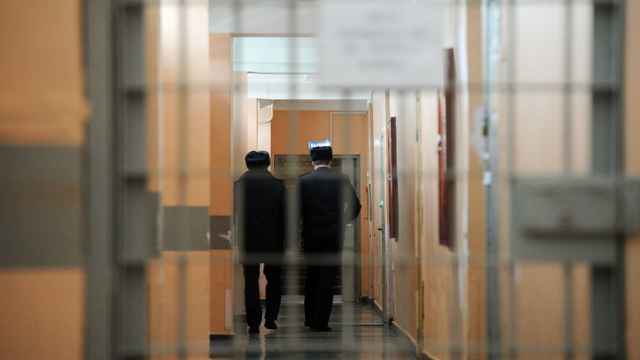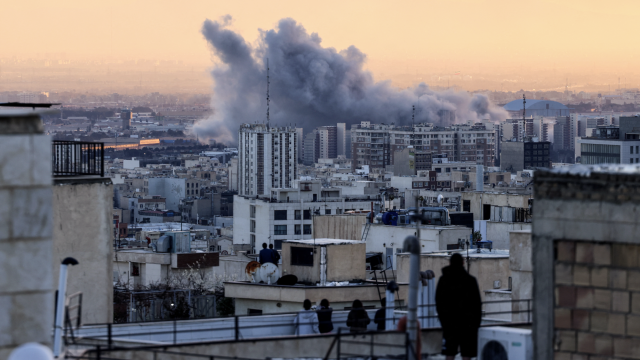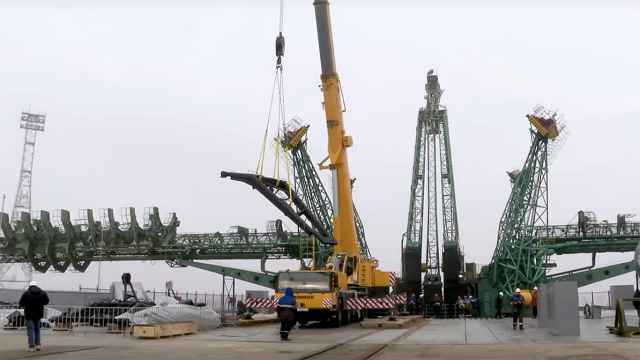Usam Baisayev, 43, an author and former journalist who has made a career of chronicling human rights abuses in the North Caucasus, presented his conclusions in a lecture in Washington last month at the National Endowment for Democracy. Such findings are likely to cause new anxiety among U.S. and European policymakers already concerned by the unrest in a region strategically important to the United States because of its proximity to Iran, Turkey and Afghanistan.
"In those republics, there are metastasizing rebel movements," said Miriam Lanskoy, a senior program officer for Central Asia and the Caucasus at the National Endowment for Democracy, who moderated Baisayev's talk. "They come to Chechnya, fight for a week or two, and go home having more credibility and status."
Lanskoy, who is completing a book on the Caucasus, said Chechen rebels who subscribed to the Wahhabi strain of Islam fought secular nationalists in 1998 for control of the separatist movement. The battles, she said, tilted in favor of the secular wing of the movement.
That changed, she said, when the secular rebel leaders tried to flee Grozny ahead of a federal assault in 2000. Many were exiled or killed, including a dozen top rebel commanders who died in a minefield.
In his lecture, Baisayev showed a slide of a wall to illustrate the shift from secular to Islamic influence within the separatist movement. One slogan that had been sprayed on the wall graffiti-style read: "Freedom or Death." Beneath it was a more recent one declaring: "Chechnya is the Province of Allah."
"They perceive themselves as having no outlet," Baisayev said of the rebels, adding that they would probably "take the fight to a broader area" that would include Ingushetia, Dagestan and other nearby republics.
A former correspondent for Radio Free Europe, Baisayev has documented human rights abuses in Chechnya since 1999, when the second phase of the war began. He is a founding member of Memorial, a nonprofit organization for monitoring atrocities, war crimes and other human rights violations.
Baisayev first became involved in human rights work in 1995, when Human Rights Watch came to his village of Zamashke during the first Chechen war. The following year, federal soldiers arrived, searching for rebels, and ordered residents out of their homes. He said the soldiers then opened fire, wounding his entire family and others in the village.
In recent years, Baisayev and a small staff in Grozny and Ingushetia have been putting together "A Chronicle of Violence," a record of abuses during the most recent Chechen war.
"Chechnya became the greatest humanitarian disaster and one of the greatest cases of human rights violations in Europe," he said.
Baisayev became known outside the North Caucasus when he spoke at a fall 2006 conference in Stockholm and caught the attention of reporter Anna Politkovskaya. She was, he said, particularly interested in his claim that Russian security services were working with Chechen criminals against the rebels.
"I gave names of concrete killers who are now in power in Chechnya," Baisayev said. Politkovskaya pleaded with a reluctant Baisayev to allow her to print his findings in her publication under a different name, which she did. Two days later, on Oct. 7, 2006, Politkovskaya was shot and killed in her apartment building in Moscow. Baisayev is uncertain whether the publication of his material led to her murder.
"She feared absolutely nothing," he said. "She had one great quality. When she wrote about someone, she did not forget him or her. So even when people felt disillusioned, people were willing to talk to her."
Baisayev said it is now up to the Chechens to make sure they are not forgotten.
"Our own history has to be written by us," he said.
A Message from The Moscow Times:
Dear readers,
We are facing unprecedented challenges. Russia's Prosecutor General's Office has designated The Moscow Times as an "undesirable" organization, criminalizing our work and putting our staff at risk of prosecution. This follows our earlier unjust labeling as a "foreign agent."
These actions are direct attempts to silence independent journalism in Russia. The authorities claim our work "discredits the decisions of the Russian leadership." We see things differently: we strive to provide accurate, unbiased reporting on Russia.
We, the journalists of The Moscow Times, refuse to be silenced. But to continue our work, we need your help.
Your support, no matter how small, makes a world of difference. If you can, please support us monthly starting from just $2. It's quick to set up, and every contribution makes a significant impact.
By supporting The Moscow Times, you're defending open, independent journalism in the face of repression. Thank you for standing with us.
Remind me later.





